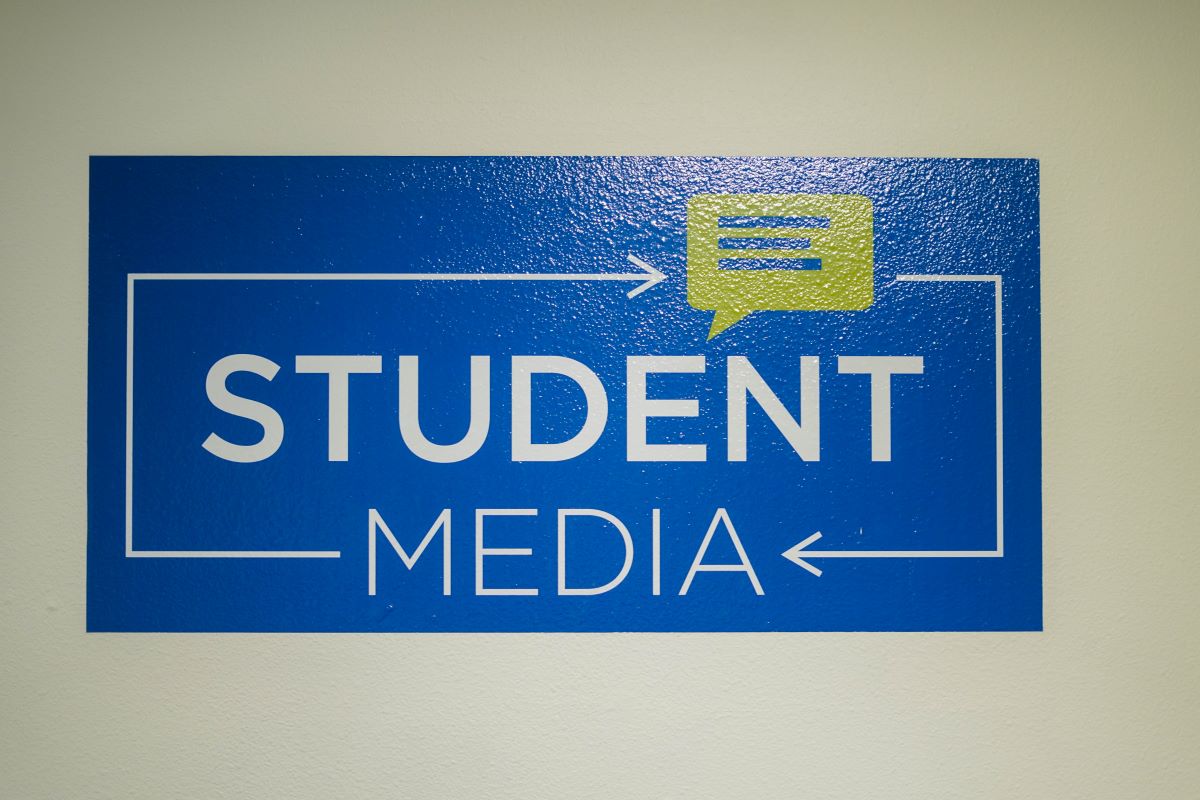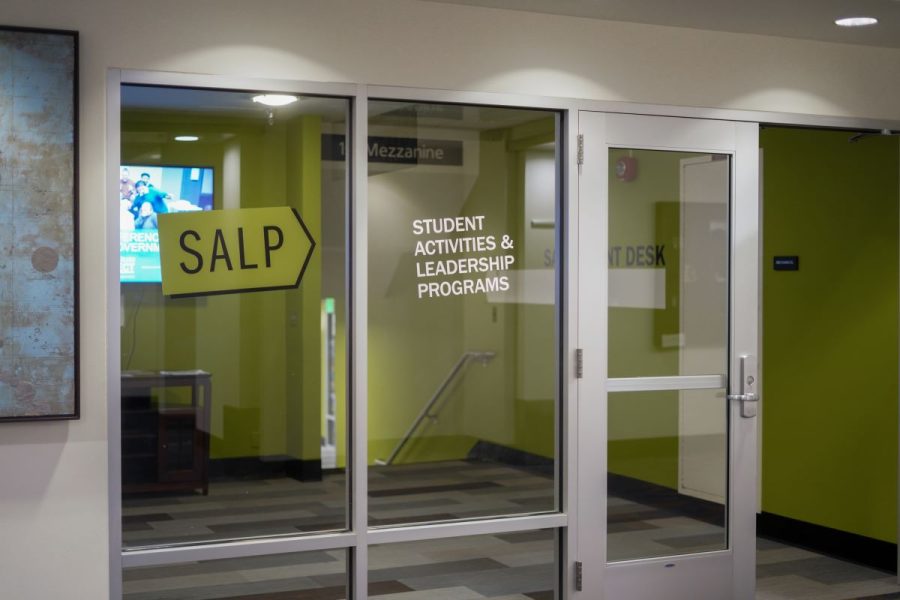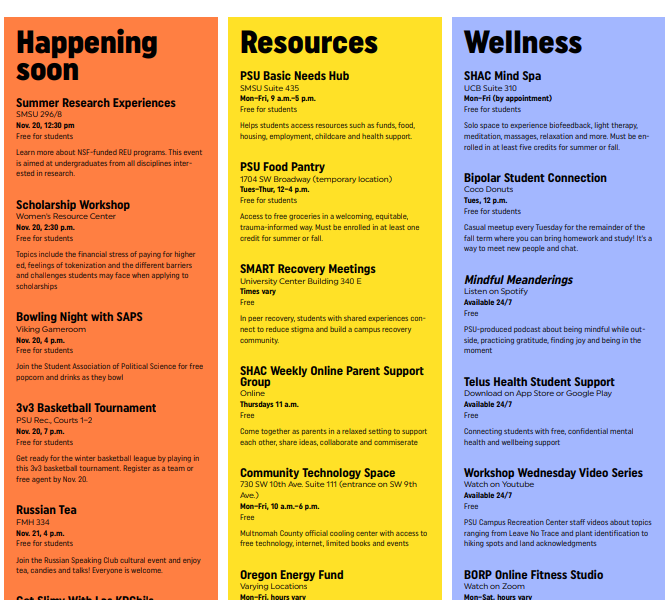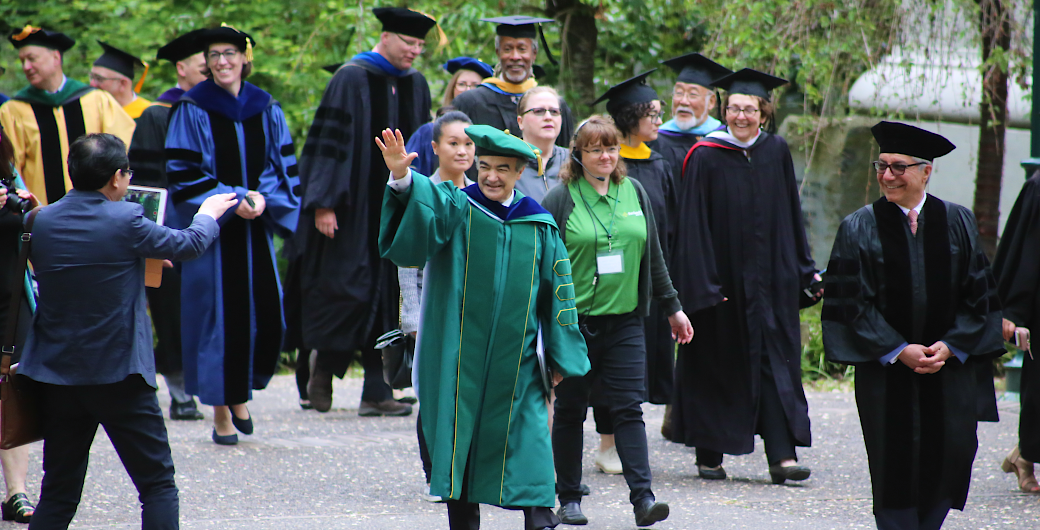Student media is holding on by a thread as processing times for contracts lengthen, and the Portland State administration has ignored this longstanding and growing problem.
Students hoping to write or design for student media organizations should typically take a maximum of two weeks to go through the contract process before they can start work. Currently, the processing time is a minimum of three months.
While the length is unprecedented, the situation isn’t new. Over the past four to five years, Portland State Vanguard and other student media organizations have seen contract processing times slowly increase, pushing student workers further and further back from their start date.
There are currently 39 students on the waiting list to work at Vanguard.
PSU’s Contracting and Procurement Services (CAPS) is the department in charge of processing contracts for student media. Since the issue arose, it has continuously cited the reason for the excessive delay is a lack of staff to do the work.
However, five years later, things have only gotten worse.
It’s worth noting that working for student media is valuable both in experience and pay. Participating in student media can assist students in covering their living expenses and allow them the ability to create a professional portfolio and build soft skills vital when entering the workforce post-graduation. This differs from working in an unrelated field where long-term career plans may not align with experience.
At a university where students are encouraged to work within the campus, it is questionable at best why a contract—which generally takes two weeks—now takes three months at minimum to process. Brian Roy—associate vice president of risk management and contracting at PSU—iterated that, simply put, the work-to-person ratio within the contracting department is not equitable.
“We have a lot of departments that are challenged by the amount of work, often exceeding the hours that the people have to be able to do the work,” Roy said. “And even [in the] best case, CAPS is really challenged to get through all of the contracts that the university expects it to.”
Two employment vacancies happened earlier in the year, increasing the already overloaded workload of those in the CAPS office.
Nonetheless, contract processing time has been a consistent and growing problem for over five years. It begs the question, why has the university not prioritized solving it?
The average requirement for someone looking to work in a contracting office is a bachelor’s degree, along with various other skills such as computing and communication. If it is a matter of staffing, what is preventing more people from being hired?
“The office is pushing for better ways to streamline the process, but contracts are complex and often require multiple offices within different departments to review and sign-off on them,” Roy said.
Simplifying the process could include delegating tasks which are currently within the scope of CAPS back to the departments who handle the work. However, despite the impact, the university has yet to make an effort to streamline this process.
The issue is coated from front to back with the signs of bureaucratic red tape and paperwork which often haunts university departments. The contracting process is blocked by a complex layer of constituents, when it really doesn’t need to be.
The point is that, if employing students was truly a concern of the university, there would be evidence of effort toward solving the issue.
Contributors—both writers and designers—help keep Vanguard alive.
Students looking to grow their writing or design capabilities gain valuable experience which they can add to their résumés and portfolios. Editors like me—who ensure their section’s pages are filled each week—could focus more energy on editing and guiding stories rather than spending all their time writing every week.
Significantly, the paper also benefits when we see and hear from various voices across campus.
Furthermore, it significantly hampers our ability to address subjects—which are of concern to students and other vital elements of a student community paper—as editors become tasked with taking on responsibilities traditionally handled by a larger team of students.
Everyone benefits from having contributors, and yet it remains unprioritized.






